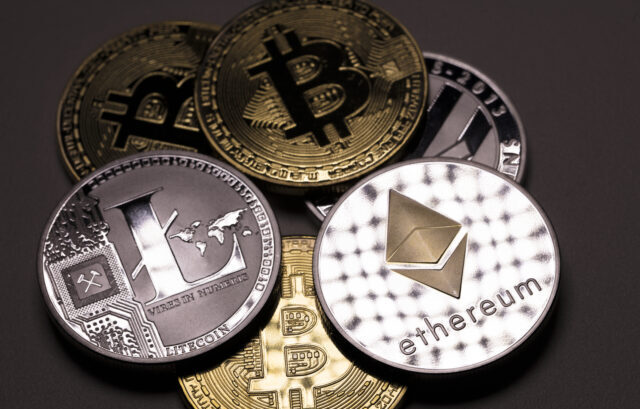Investment advisers in the UAE are resisting recommending their clients invest in cryptocurrencies, despite investors showing keen interest in putting their money in the asset class in view of the handsome returns and swelling popularity.
Market reports said cryptocurrencies, Bitcoin in particular, were the top asset class of 2020-21 with incredible returns of 800% in a single year.
“Though there is an aura around investing in cryptocurrencies there is still a lack of clarity and understanding on this asset class from both advisors and investors. I will classify this asset class as ‘very speculative’ and ‘volatile’ investment. Therefore I will not actively recommend investing in cryptocurrencies at this juncture,” said Krishnan Ramachandran, chief executive of Barjeel Geojit Financial Services, Dubai.
Advisers said there is considerable interest shown by investors to invest in cryptocurrencies but they are not convinced about the regulatory oversight that the various crypto investment platforms offer at this juncture.
They are also taking a cautious approach and advise investors not to be carried away by the ‘incredible returns stories’.
“These assets are highly speculative and investors will burn their fingers,” the advisers are warning.
It’s cryptic for most
A recent survey found that most people don’t understand or trust cryptocurrencies.
Though mainstream financial institutions have started embracing them, the main street has not.
According to the survey, 61% of people who had heard of virtual currency said they had little or no understanding of how they work.
Only 14% of those familiar with crypto said they understand “very well” how they work.
The survey found that nearly half of respondents had only heard the names of cryptocurrencies such as Bitcoin, Ethereum and Dogecoin coins, whereas 16% said they were very familiar with the cryptocurrencies and 28% said they were somewhat familiar, according to the survey of 1,984 people.
More than one in 10 American adults have never heard of cryptocurrencies.
The poll was conducted against a backdrop of unprecedented growth in the cryptocurrency market with some of the world’s most popular digital coins registering record high market price.
Bitcoin, the world’s most popular crypto, jumped beyond $60,000; while Ethereum, the second most preferred, reached a record $2,113, and Binance Coin soared to $392.41.
Sharp fall and steep hike
Bitcoin’s rally has stunned observers and left critics counting down the hours before a fall.
While 4% of the survey participants think Bitcoin will fall to $0, yes $0, 8% see it surging above $100,000.
Advisers cite the lack of familiarity and trust among most investors in the currency as the reason for the scepticism.
Among people familiar with cryptocurrencies, some 43% expressed doubts about their legitimacy as a form of payment. As high as 29% of the survey participants think crypto will largely be forgotten in 10 years, whereas 34% believe it will become a standard form of payment.
Companies including Mastercard and Tesla have said they plan to begin processing payments in cryptocurrencies.
The better alternatives
Asked to suggest alternatives, Ramachandran said there are a few Bitcoin ETFs that are now available for investors. However, they are not listed in the main/active stock exchanges anywhere in the world.
An emerging Bitcoin ETF segment will be a good option for investors to consider allocating a small portion of their investments to the crypto asset class.
“Mutual funds, insurance, bonds, direct equity, bank deposits, gold, commodity backed investments, etc, will continue to be the asset classes the retail investor should continue to invest, depending on the risk profile, appropriateness and appetite of the investor,” Ramachandran said.
Binoo Nayyar, chief financial officer, TrendRiser Securities, Dubai, said: “Investors should be circumspect in embracing the relatively new asset class and should wait till any government formally recognises it and proper regulations are put in place.
“Till then, the ideal asset classes are mutual funds, equities and bonds, which have a risk-free profile.”
Risk-averse investors should look for cryptocurrencies issued by any central bank, which will have legitimacy.








